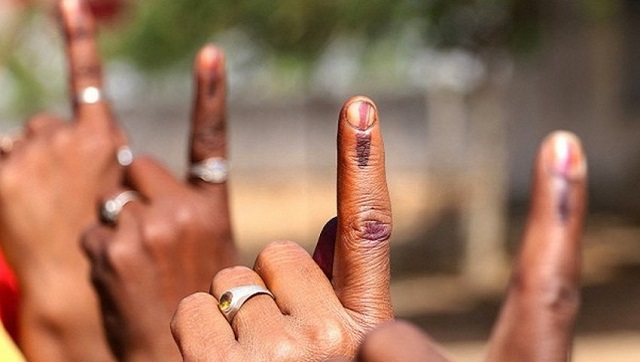A decade back when Gujarat went to polls for the state Assembly, then Chief Minister and BJP leader Narendra Modi made a rare intervention through a blog that appeared on the website of Times of India. The blog published during the middle of the campaign was remarkable for its breaking away from conventional logic of electoral politics in India. While most election time political campaigns in India have tended to focus on sops, entitlements and social identity-based rhetoric, the blog by Narendra Modi that appeared on 6 December 2012 was perhaps the clearest and most forthright articulation by a mainstream Indian political leader on the need to privilege the spirit of enterprise over a culture of entitlement. A decade later as Gujarat once again goes to Assembly polls with entitlement politics of free electricity on the ballot, it is no wonder that Prime Minister Modi has located the electoral debate in Gujarat on generating income from electricity rather than seeking subsidies. The 2022 Gujarat elections are also remarkable for how mobilisation based on caste-based entitlements has faded into the background in stark contrast to the 2017 polls. With the leading lights of the quota campaigns of 2017 now firmly in the BJP, the politics over quota in Gujarat has been rendered irrelevant with the campaign firmly located on the question of who has a better model of development. With enterprise and economic growth pitted against freebies and subsidies, Gujarat 2022 is in many ways laying out a template for how elections of the future in India ought to be fought. Implicit within the call to generate income is perhaps the first sign of renewable energy and sustainability making a quiet entrance into Indian political campaigns. With his pitch for generating income from roof-top solar power being sold back into the grid, Prime Minister Modi has not only countered the promise of free electricity but he has also put energy sustainability on the ballot. The debut of roof-top solar into the electoral campaign Gujarat should neither be seen as a counter-reaction to the subsidy politics of the AAP nor should it be viewed as a distant promise typical of election manifestos. For, it was exactly a month back that Prime Minister Modi declared Modhera in Gujarat’s Mehsana district as India’s first 24x7 solar powered village. With more than 1,300 roof-top solar installations across Modhera combined with a ground-based solar plant, Modi more than walked the talk when he called on Gujarat to think beyond the unsustainable politics of power subsidies. Modhera as the symbol of solar-based power reforms in India is symbolic for cultural and historical reasons as well given the more than 1,000-year-old iconic Sun Temple built during the Chalkuyan era. From placing solar panels over irrigation canals to conserve water as well as to generate power, Modi has been at the forefront of innovative approaches to developing renewable sources of energy. His championing of the International Solar Alliance and locating it in India was a significant intervention in the global geo-politics over climate change and sustainability. With the framing of “anna-daata” as “urja-daata”, Modi’s pitch to the farming community on surplus electricity as a source of additional income has subtly hit on another aspect of unsustainability of power subsidies to the farm sector that saw the depletion of groundwater in Gujarat during the 1990s leading to the launch of Jyotigram Yojana a decade later in the 2000s. It is striking how two decades later, the debate in Gujarat has moved away from seeking waiver of electricity bills in agrarian distress to viewing electricity as a means to diversify sources of income from agriculture. The electoral debate over income generation from renewable energy sources is yet to find a direct political counter. Instead, politics over progressive reforms to pensions have surfaced in both Himachal Pradesh and Gujarat with the Opposition-ruled states of Rajasthan and Punjab reverting back to the fiscally unsustainable old pension system. Interestingly, the switch over to the old pension scheme has also exposed fault-lines within the Congress with several voices raising questions over the regressive move. From energy sustainability based on renewable sources to fiscally sustainable pensions, the verdicts from this last wave of state Assembly elections of 2022 will be a critical indicator on the campaigns of the future as we head into the general elections of 2024 in about 15 months. With the shifting of the debate from entitlement to free electricity to one over sustainable economic development rooted in the spirit of enterprise, the campaign for Gujarat 2022 elections has turned a progressive corner. With politics of caste-based quotas taking a backseat, Gujarat is not only sending a message to the rest of India on regressive and divisive campaigns being past their sell-by date, but also on how sustainability will be a defining issue in electoral campaigns of the future. The writer is the former CEO, Prasar Bharti. Views expressed are personal. Read all the Latest News , Trending News , Cricket News , Bollywood News , India News and Entertainment News here. Follow us on Facebook, Twitter and Instagram.
With enterprise and economic growth pitted against freebies and subsidies, Gujarat 2022 is in many ways laying out a template for how elections of the future in India ought to be fought
Advertisement
End of Article


)

)
)
)
)
)
)
)
)



